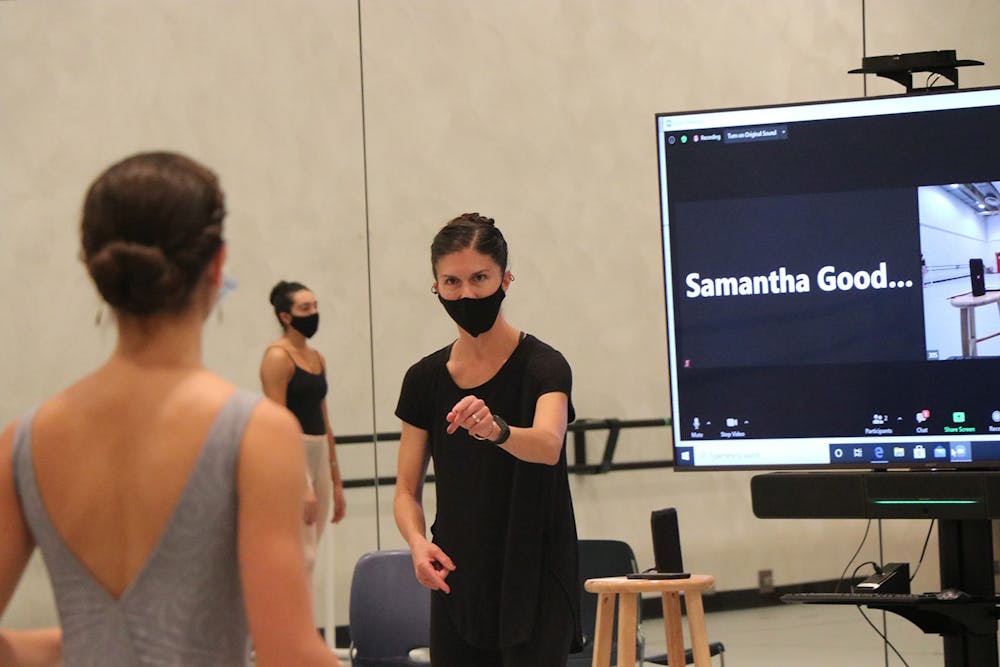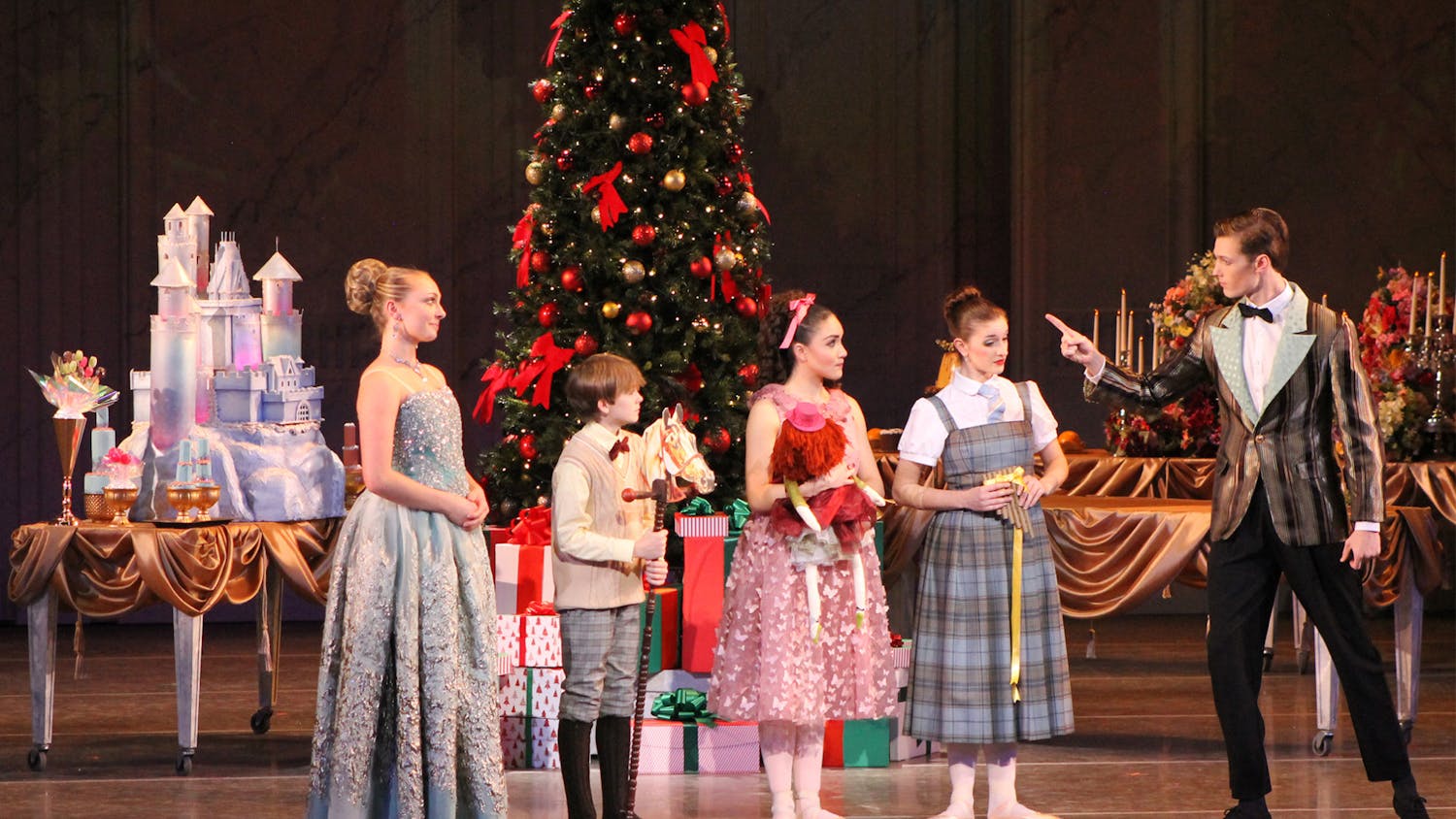Sarah Wroth, chair of the IU ballet department, said she is determined to not let ballet die during the COVID-19 pandemic. When the pandemic began in the spring, the IU ballet department had to adjust swiftly.
Once the ballet faculty found out IU classes were going online, they met virtually to develop a new online curriculum, Wroth said. They included as much as they could — conditioning class, technique class, point class and some repertoire.
“We just took this idea of education and ballet and made it fit like water in a new vessel to the online form,” she said.

Wroth is also an associate professor of music in ballet at IU. She came to IU in 2017 after 14 years of working as a professional dancer with the Boston Ballet Company.
Working on Zoom in the spring was exhausting, she said. It was harder to address students as a group to correct them, and faulty Wi-Fi connections affected faculty teaching from home.
Dancing ballet at home is not equitable to in-person class because students have different resources and space, Wroth said.
Senior ballet student Sam Epstein said working in the home environment is difficult without sprung flooring, which is traditionally used in dance studios.
“There are certain things like jumps that are much harder on the body inside a home environment,” he said.
Some ballet students bought squares of marley flooring, which allow dancers to turn better, Epstein said. He said the department provided some ballet students with marley squares if they did not already have them at the beginning of the 2020-21 school year.

Wroth said despite the hardships, the online curriculum was still rewarding and effective.
“There is always something to work on in ballet,” she said. “To explore how we could challenge the students to be their best selves and get even better in the at-home space was pretty exciting.”
This semester, some classes were taught in person with some guidelines and restrictions, which Wroth helped create with information from the International Association for Dance Medicine & Science. Wroth said two or three of her colleagues are teaching in person as well.
Classes are made up of six, seven or eight students. All wear masks in class as instructed by the university and are always socially distanced, Wroth said. Students have individually assigned spots and barres as well as places to put down their gear.
“I actually feel like these small groups have allowed us to really zone in on individual people and make sure everyone is feeling seen, heard, pushed, actualized in beautiful ways,” Wroth said.
Epstein said the curriculum is a hybrid with some dance classes in person and some, such as guest lectures, online. In addition to other regulations, he said dancing with a partner is not allowed this semester.

Wroth teaches in-person classes in front of a Zoom call on a large television so students in quarantine can still attend classes online and not miss out on the curriculum.
Zoom launched an update toward the beginning of the school year to fix background audio issues, which has caused some issues for students watching the class online, she said. Zoom sometimes recognizes music as background noise, and when she talks over the music to instruct her students, sometimes the music will cut out on the call.
“I am a talker,” Wroth said. “I have an issue sometimes when I have to keep my mouth shut while the music is playing and I see something wrong that needs fixing.”
But overall, there have not been many issues teaching in-person classes, Wroth said.

The department also created rotation groups for students to focus on specific skills and implement the performance element. Some groups worked on solo performances while others work on group performance, she said.
“My biggest hope for this semester is just that everyone stays well and grows as artists,” Wroth said. “I want everyone to have achieved an arts education by the end of this semester.”
Epstein said solo performances are filmed and usually attended in person by peers and by other students over a Zoom call. He said some performances are also outdoors, including one more than two weeks ago titled “Meditation on Resilience,” part of the Jacobs School of Music's outdoor performance series "The Art of Mindful Listening".
Epstein performed a solo representative dance of a birth of a swan, a twist on the dying swan solo traditionally performed by a female in classical ballet, he said.
“Sarah choreographed a solo that was inspired by the solo if it were in reverse,” he said. “Instead of a swan that’s dying, a swan that’s coming to life was the idea, which I think ties very well to that theme of resilience and that hope for a renewed sense of life and normalcy.”




